The Wikipedia assignment is giving students career skills that allow them to address misinformation, to correct the historical record in racially marginalized communities, and to discover that personally, they are a crucial part of the solution.
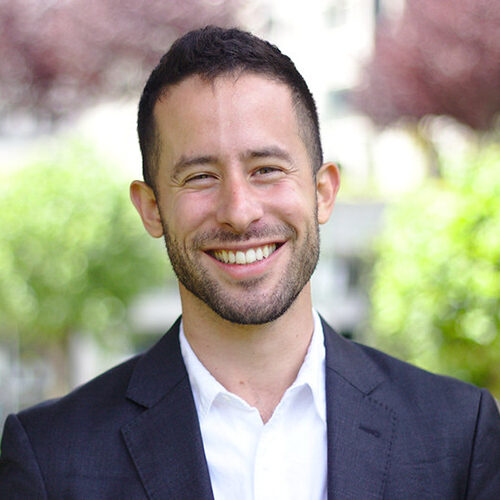
I recently visited students at Denmark Technical College, a historically Black college in South Carolina, to share about Wiki Education’s efforts to diversify Wikipedia’s content and contributors. While reviewing the Wikipedia assignment, I showed them a picture of a recent conference of Wikipedians–the people who write what we could call our living history. And the students noticed something immediately. “Where’s the spice?” they joked, pointing out that the majority of the faces were white.
It’s true. Out of thousands of Wikipedians in the US, 89% identify as white and 85% as male. So we have this incredible resource–Wikipedia–that is mostly curated by white men. The students understood the problem with just one photo. Without a diversity of contributors, how can we expect Wikipedia to reflect the perspectives and experiences of all people? Of the students in that room?
So far, Wiki Education has helped Wikipedia make some progress. Only 55% of people in our programs identify as white, as opposed to 85% in the larger Wikipedian community. 69% identify as women or nonbinary, in contrast to roughly 15% of Wikipedians. And Wiki Education is responsible for bringing 19% of new editors to English Wikipedia each year.
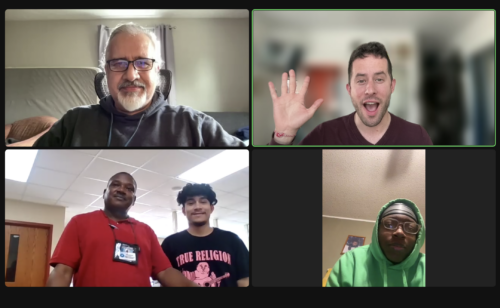
My job at Wiki Education is to continue to increase the diversity of content and contributors on Wikipedia. One of the ways I do that is by inviting instructors from Historically Black Colleges and Universities (HBCUs), Hispanic-Serving Institutions (HSIs), and Tribal Colleges and Universities (TCUs) to lead Wikipedia assignments. My dream is that one day, there will be more students of color editing Wikipedia than represented in the population of the US. It’s a personal dream, a personal goal, that powers my work every day. Here is how Wiki Education programs are doing so far:
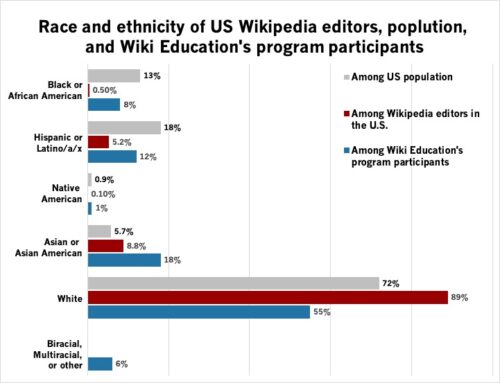
I have a lot of conversations with instructors at HBCUs, HSIs, and TCUs about how a Wikipedia assignment does or does not meet their course objectives. And I find we usually circle back to the same core things that we both wish for students. We want them to:
1) see themselves in our culture and history
2) feel inspired by their schoolwork
3) have the skills to weed out misinformation in their life, and ultimately
4) influence the world around them, change the narrative.
I’d like to share some student work from HBCUs over the years that I think are particularly powerful examples of students filling important knowledge gaps on Wikipedia while choosing topics that are meaningful to them. Writing on such a public stage is a pretty powerful motivator for students, who take extra care to get it right and feel proud of their work.
Students identify biases and gaps, and change the narrative
A student at Kentucky State University noticed that Alice Walker’s Wikipedia biography spoke of her ‘feminism’ rather than her ‘womanism,’ the term Walker coined for her work. In fact, Walker did not feel represented within the mostly white feminist movement of the time. Understanding this nuance, the student changed the section title from “Feminism” to “Womanism” to better reflect Walker’s work and legacy, and expanded the section to briefly describe the difference between feminist movements. Since they made this correction in 2018, 2.2 million readers have visited the page and benefitted from the addition.
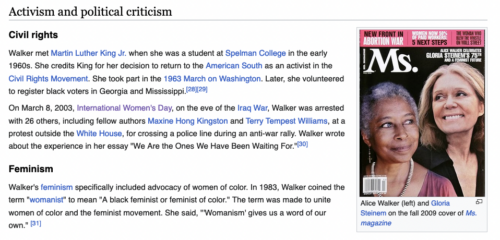
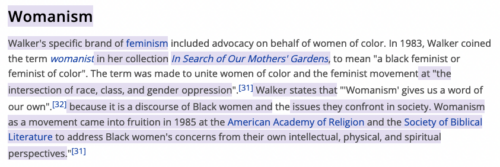
Alice Walker isn’t the only pioneering Black woman whose biography contained biases that students at HBCUs have fixed. Did you know that Hattie McDaniel–the first Black woman to win an Oscar–wasn’t allowed to attend the premiere of the movie she won it for because of her race? A student added this information to her Wikipedia biography, which has reached 2.1 million readers in the last three years. And what about Elaine Brown, the first and only woman to lead the Black Panther Party? Even with her impressive leadership position, she still experienced sexism within her career. A student from Spelman College added that information to her biography, which has been viewed 117K times since. Another student at Spelman College wrote about how McCarthyism affected jazz musician Hazel Scott’s career, for the benefit of 276K readers.
When we remember history, there’s a risk of downplaying the barriers that pioneers faced in favor of a whitewashed or milder narrative. Students can play an active role in telling the full story of our history, understanding that these nuanced perspectives matter and belong in places like Wikipedia.
Students document discrimination, possibly enacting change
Information is power and Wikipedia has the power to affect behavior. So when students document marginalization in various fields, they could very possibly enact positive change.
A few of Tanya Allen’s music students at Texas Southern University looked for information gaps in Wikipedia’s page about classroom management. One notable gap that a student filled was that Black boys are subjected to punishment more than white peers. 743K readers have visited the page since the student cited this research back in December 2017. Presumably some of these Wikipedia readers were teachers themselves, learning from and being made aware of these disparities and discriminatory classroom methods, and hopefully avoiding them in their own teaching.

Another student at Xavier University of Louisiana explained how colorism factors into the history of racial discrimination in the US, informing 970K readers since 2017. Another student from the same course wrote about how Black women face an increased risk of health problems in the United States for the benefit of 185K readers.
This process of identifying gaps in information sources that we may take for granted gives students the chance to discern fact from fiction as they build media literacy skills and correct the public narrative.
Students see themselves in our culture and history
Because students and instructors can choose the topics they edit, they can create awareness about a wide range of topics that they’re personally invested in. One instructor I spoke with recently is passionate about first generation college students seeing themselves represented more widely in our society. Wikipedia is potentially one avenue for accomplishing that. Many students report that this kind of personal investment in their learning is quite the motivator. It’s a chance to make their school work their own.
A Wikipedia assignment is also a chance to look at personal interests through an academic lens and inform many others about the connections between the two. Msia Kibona Clark’s student at Howard University, for example, wrote about hip-hop on the Black feminism page, which has already received 30K page visits since November. Another student from the course wrote about the “video vixen” or models that appear in hip-hop music videos and how the trope has affected the hyper-sexualization of Black women, informing 35K readers so far in just a few months.
Inspiring confidence and creating a passion for learning
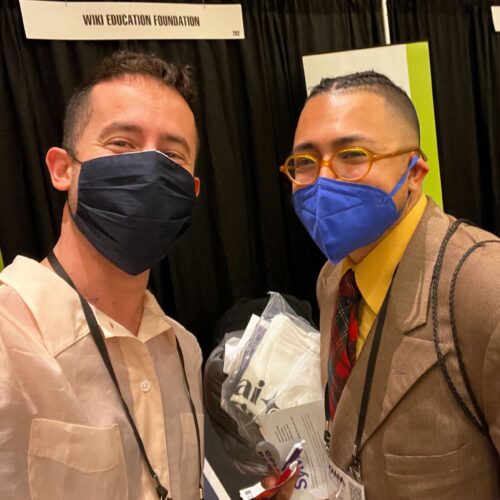
In addition to being the Equity Outreach Coordinator at Wiki Education, I am a professional cellist and music teacher who’s performed on hundreds of stages across the world. And you might ask, “why does he work for Wiki Education?” There is a throughline. Our society simultaneously inspires a love of art and learning and, sadly, also works against it. When it’s hard to determine fact from fiction on the internet, when discrimination and racial disparities affect our communities, how can we expect students of color to enjoy the arts? When many student populations just need to put food on the table, how is there time to feel inspired by schoolwork or go to concerts? The Wikipedia assignment is giving students career skills that allow them to address misinformation, to correct the historical record in racially marginalized communities, and to discover that personally, they are a crucial part of the solution. These skills will help them feel more confident in their abilities, and hopefully, not fear getting out into the world and proving themselves capable of much more than they imagined. And maybe, just for a moment, that confidence will allow them and future generations to enjoy the wonder of art and music.
As part of my work at Wiki Education, I learn from instructors all over the United States and Canada as they grapple with these questions too. I truly believe that inviting students to write Wikipedia content as coursework is a powerful way to empower students and lift them up in our society. They can think critically about bias in information. They can practice determining fact from fiction and trustworthy information from untrustworthy. From there, they can make educated judgments about these questions in their own life. And they can take part in writing our living history.
